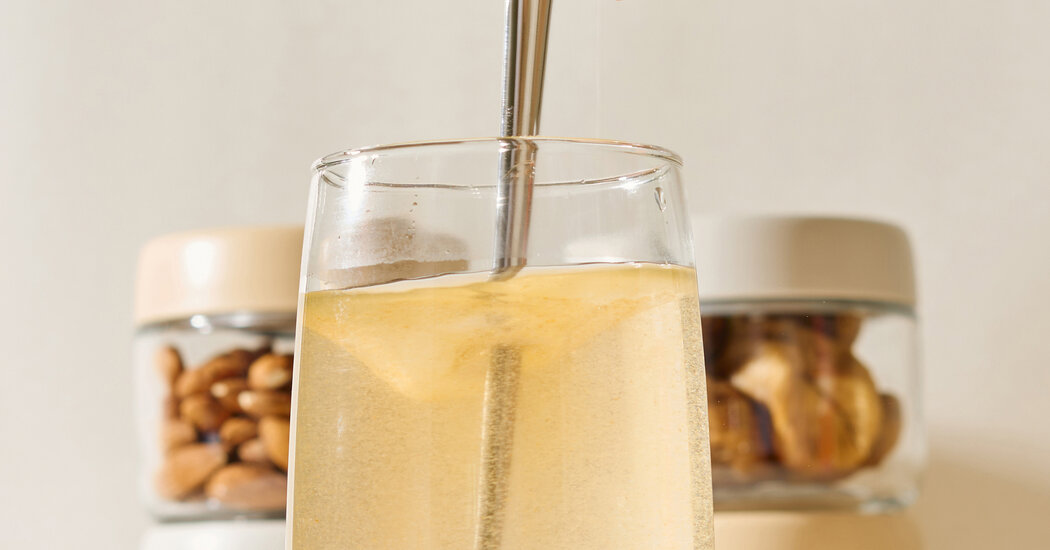Q: I take a fiber supplement every day, but I’m not sure if it has the same health benefits as foods high in fiber. Is getting fiber from a supplement just as good?
Everyone’s definition of “good” is different, says Dennis Milstein, M.D., an integrative medicine physician at the Mayo Clinic. If your goal is to improve bowel movements or reduce digestive symptoms (like constipation, diarrhea, bloating, or cramps), Milstein says fiber supplements can often help.
But you won’t get the vitamins, minerals and other beneficial compounds found in foods high in fiber, she noted.
Fiber is a nutrient that your digestive system cannot break down. It slows the movement of food through your digestive tract, reduces blood sugar spikes, lowers cholesterol, and adds bulk and softens stool, reducing the risk of constipation.
Dr. Milstein said that when you take a fiber supplement, all you’re getting is fiber. But when you get fiber from your diet, you get other nutrients, she added. For example, one cup of blueberries contains 4 grams of fiber, along with B vitamins, vitamin C, potassium, magnesium, and more.
These and other important nutrients in fiber-rich foods work together to reduce inflammation and lower the risk of cardiovascular disease and some cancers, says Nicola McKeown, a professor of nutrition at Boston University. Fiber-rich foods also help “maintain gut health,” she says.
That’s why experts recommend getting your fiber needs — typically 21 to 38 grams or more per day, depending on age and gender — preferably from fiber-rich foods. Fiber-rich foods include fruits and vegetables, nuts and seeds, legumes, and whole grains.
One way to ensure you hit your daily goal is to include fruits and vegetables at every meal, says Julia Zumpano, RD, a dietitian at the Cleveland Clinic’s Center for Human Nutrition. Or, you can sprinkle flax or chia seeds on some foods, like oatmeal or smoothies, to boost the fiber content, Zumpano adds.
If you still have trouble getting enough fiber, experts say supplements in powder, gummies or capsules can help, but there are some important considerations to keep in mind.
How to Get the Most Out of Your Fiber Supplements
If you have any digestive issues such as irritable bowel syndrome, inflammatory bowel disease or diverticular disease (where small pouches form in the large intestine, which can become inflamed and infected), it’s best to talk to your doctor or dietitian before taking a fibre supplement, said Megan Rossi, research fellow in nutrition at King’s College London.
When you start adding fiber supplements to your diet, start slowly, says Zumpano.
Milstein says that common forms such as inulin and chicory, which are often found in processed foods like granola and energy bars, “can be quite hard” on the digestive system, causing cramping, constipation, and loose stools for some people.
Zumpano recommends powder-based fiber supplements like wheat dextrin, psyllium, or inulin, which are often sold without additives and can be mixed into liquids like water, coffee, juice, or milk for the added benefit of staying hydrated.
Fiber tablets and gummies can also help you reach your daily goal, but they do have drawbacks, says Zumpano. In some cases, the fiber content per serving is so low that you’d need to consume a lot to reach your daily goal. If they contain other added ingredients (such as sugar or artificial sweeteners, flavors, or colors), you may be consuming more of those ingredients than you need.
And in some cases, the concentration of fiber per serving can be too high, which can lead to unpleasant side effects like gas, bloating and stomach cramps, she adds.
If you do choose to add a fiber supplement to your diet, Zumpano recommends choosing one that has about 3 to 5 grams of fiber per serving. Once your body gets used to that amount, you should be able to take in more without any side effects.
It’s also important to drink plenty of water when taking fiber supplements, Dr. Milstein said. Paradoxically, drinking too little water can lead to constipation, he added. It’s also important to read labels carefully to make sure they don’t contain any extra ingredients you want to avoid.
